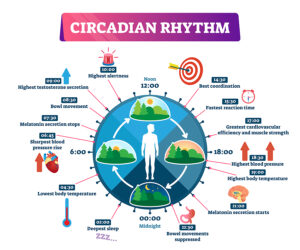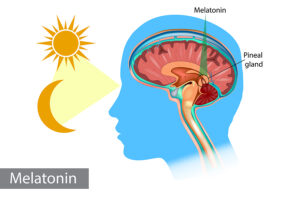A study followed younger patients for 32 years looking for the effects of a plant-centered diet on cardiovascular disease in midlife. The researchers determined the heart attack and stroke rates when the participants were in their 50’s to 60’s. When on a plant-based diet cardiovascular disease rates fell by 52% compared to a control group with a meat containing diet. One subgroup changed the diet from a regular diet to a plant-based diet over 13 years. This reduced the risk ratio by 61% for heart attacks and strokes when assessed later.
Details of this study
There were 4946 adults as participants of this 32-year study. They were recruited in 1985 and 1986, at which time none of them had cardiovascular disease. The study completed in 2018. The results were published on Aug. 4, 2021. The researchers assessed the plant-centered diet quality using a tool with the name “A Priori Diet Quality Score” (APDQS). The higher the score, the higher the quality of the food. This means the person consumed nutritionally rich plant foods, limited amounts of high-fat meat products and less healthy plant foods.
Although a plant-rich diet consisted primarily of nutritionally rich plant foods, small amounts of animal products were also allowed. This involved low-fat dairy products, non fried poultry and steamed or grilled fish. This made the diet tastier and ensured that people would stick to this diet for decades.
Improvements of heart attack rates with plant-centered diet
After 32 years 289 cases of cardiovascular disease developed. The researchers compared participants with the highest food quintile to participants with the lowest food quintile. As mentioned, the risk for participants on a plant-based diet was 52% lower to get a cardiovascular disease. Moreover, a subgroup changed from a higher risk (fatter meals, meat, less vegetables) diet to a lower risk diet (lean fat, lean poultry, vegetables). Physicians followed this subgroup for 13 years and the risk ratio for heart attacks and strokes fell by 61%.
Comparison to other diet studies
There are other studies that looked at the effect of diet changes on the risk of developing heart disease. One such study examined 86 cross-sectional studies and 10 prospective studies in a meta-analysis. Vegetarian diets reduced deaths from heart attacks by 25% and brought down the incidence of total cancer rates by 8%. A vegan diet reduced the risk of total cancer by 15%.
In a study from the United Kingdom dated March 2019 several clinical trials were analyzed regarding non-diabetic populations. The question came up, what the effect of a Mediterranean diet was on cardiovascular disease incidence and mortality. The authors reviewed 30 RCTs (49 papers) with 12,461 randomized participants and seven ongoing trials. In one study the observation time was 46 months. A Mediterranean diet reduced the cardiovascular disease mortality by 65%!
Another study from Spain
Another study from Spain published in 2019 examined 7356 older adults (average 67 years) and followed them for 6.8 years. The investigators kept track of the physical activity and put everybody except the controls on a Mediterranean diet. The group on the lightest leisure-time physical activity consuming a Mediterranean diet had the lowest mortality. The all-cause mortality of this group was 73% lower than the control group.
What is so healthy about the Mediterranean diet?
Despite a wide variation between all the 15 countries bordering the Mediterranean Sea, there are common characteristics: an abundance of vegetables and fruit, along with nuts and legumes. Cereal products are largely whole grain. Olive oil is the principal fat source, and people eat fish, seafoods and poultry in moderation. They consume red meat rarely. Cheese and yogurt can be part of the diet, depending on the region.
The first clinical evidence supporting the health benefits of the Mediterranean diet came from the Lyon Heart Study. The researchers placed patients who had a heart attack either on the diet designed by the American Heart Association or a Mediterranean style diet. After a follow-up of 27 months, the group eating the Mediterranean diet had a reduction of heart attacks by 73% and a decreased mortality by 70% compared to the other group.
More detail on the ingredients of the Mediterranean diet
An analysis of the various foods of the Mediterranean diet shows the reasons for the health benefits clearly. The fats that people on a Mediterranean diet eat are heart-healthy monounsaturated fats like olive oil or fats that contain omega-3 fatty acids. They come from fish (tuna, salmon, trout, sardines) or from plant sources (walnuts, other tree nuts and flax seed).
As there is an emphasis on natural foods, the diet is extremely low in trans fatty acids (hydrogenated fats), which otherwise increases the risk for cardiovascular disease. As people consume more than 300g of vegetables per capita daily, the contents of antioxidants and other beneficial plant chemicals is much higher in comparison to Western diets. There are many individual components of the Mediterranean diet that contribute to the reduction of disease. This is particularly true for heart disease. It also is apparent, that there is not one single food or nutrient that is responsible for the health benefits. What matters are the interactive effects of all the nutrients that lead to the health benefits.
No processed food means healthier living
The practical application does not mean deprivation and starvation, but a move away from processed fats (margarine), baked goods (donuts, muffins, pastries), and high saturated fat snacks and trans fats (chips, crackers, cookies, pies). Food choices move towards those of fresh fruit and vegetables, nuts, fish, and olive oil. Portions or servings have to be adequate to maintain a healthy weight.
Mediterranean food is not the heaping plate of pasta with an afterthought of vegetables. It also is not the super-size fast food pizza with pepperoni and cheese. Mediterranean food incorporates fresh food rather than fast food. It entails a shift from large portions of red meat to smaller portions of fish, a transition from highly processed foods to ample helpings of dark green vegetables with a dose of olive oil. Low amounts of alcohol, especially red wine can make a meal enjoyable, which means that the limit is one drink per day for women, and two drinks per day for men. After dinner go for a walk!
Olive oil is one of the reasons why the Mediterranean diet is so healthy
In the past it was thought that the monounsaturated fatty acids in olive oil would be the reason why it is protective of the heart. However, newer studies have shown that it is the polyphenols and among these in particular hydroxytyrosol that lower blood pressure and protect you from hardening of the arteries.
A 2012 study from Spain has found that mortality from heart attacks was 44% lower than that of a control group who did not incorporate olive oil in their diet.
How polyphenols in olive oil work for you
Only two tablespoons of extra virgin olive oil per day protect you from heart disease. It does so by reducing the total cholesterol level in the blood as well as the LDL cholesterol level. When there is more polyphenol in olive oil (such as in extra virgin olive oil), the body produces more HDL, which is essential to extract oxidized LDL from arterial plaque. On top of that polyphenol rich olive oil increases the size of the HDL particles (these larger particles have the name HDL2), which are more efficient in extracting oxidized LDL from arterial plaques. A Sept. 2014 study in humans showed that higher polyphenol olive oil as found in extra virgin olive oil caused an increase in the more effective HDL2 particles. This cleans out plaques from arteries more effectively than the regular, cheaper olive oil.
Conclusion
Several large, well-controlled studies showed that there are pronounced effects of a plant-centered diet on cardiovascular disease in midlife. Heart attack rates and mortality rates were reduced by 25% to 73% on a Vegan diet or a Mediterranean diet. When people combine a plant-centered diet with regular physical exercise they also live longer. One of the ingredients of a Mediterranean diet is extra virgin olive oil. It contains polyphenols that lower total and LDL cholesterol. It also increases the larger particles of HDL cholesterol with the name HDL2. HDL2 is more efficient in extracting oxidized LDL cholesterol from arterial plaques.
What you can eat on a plant-centered diet
A plant-centered diet incorporates fresh food rather than fast food. It entails a shift from large portions of red meat to smaller portions of fish, a transition from highly processed foods to ample helpings of dark green vegetables with a dose of olive oil. Instead of large portions of beef and sausages shift to seafood (tuna, salmon, trout, sardines), walnuts, other tree nuts and flax seed. The statistics clearly showed the effects of a plant-centered diet on cardiovascular disease in midlife with a reduction of heart attacks and mortality.
Some of the text above was published previously here.















